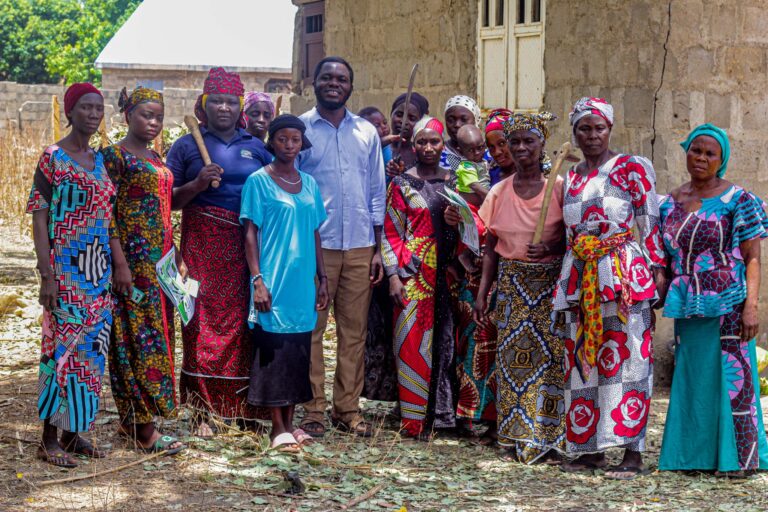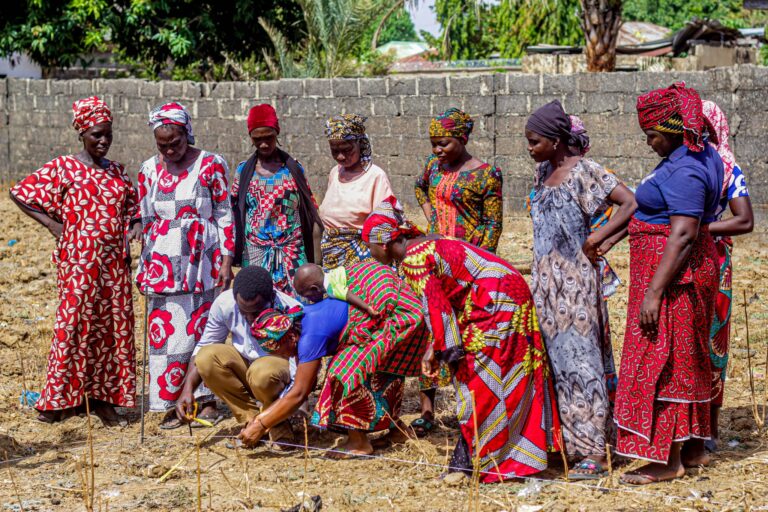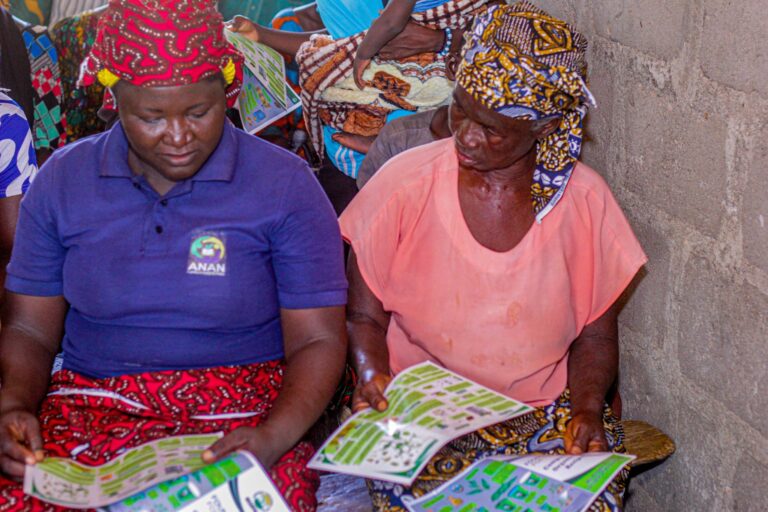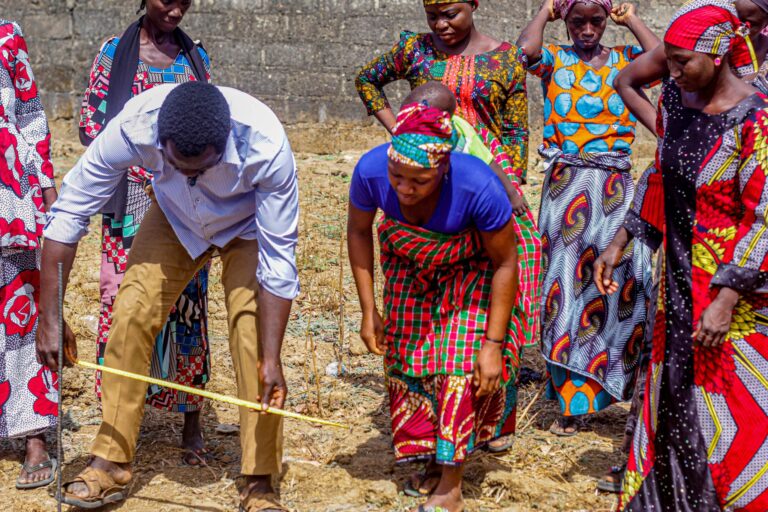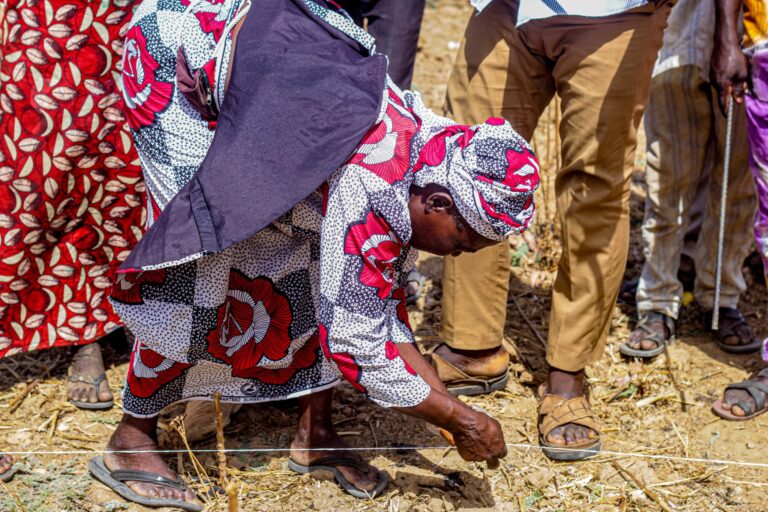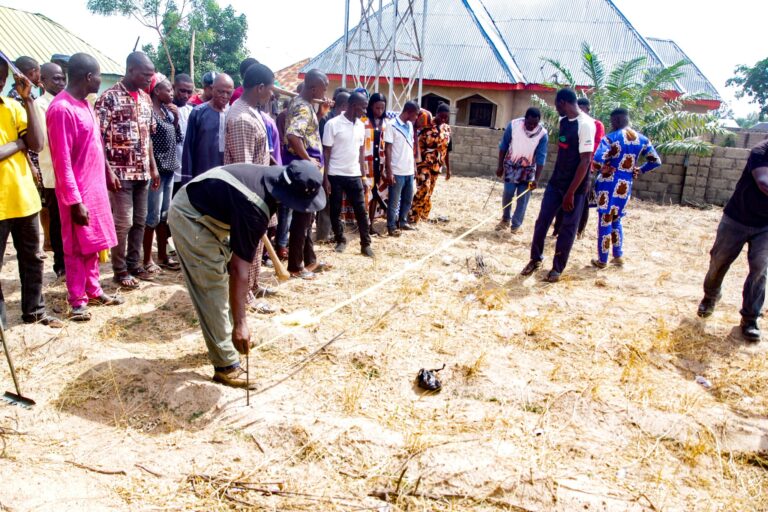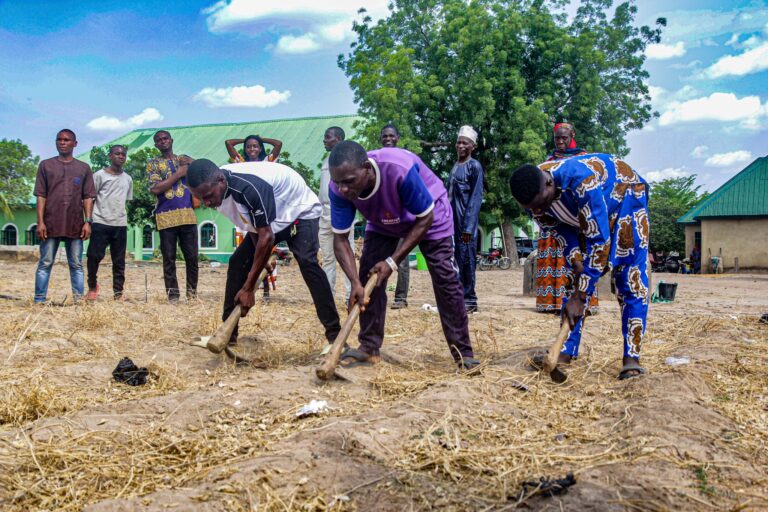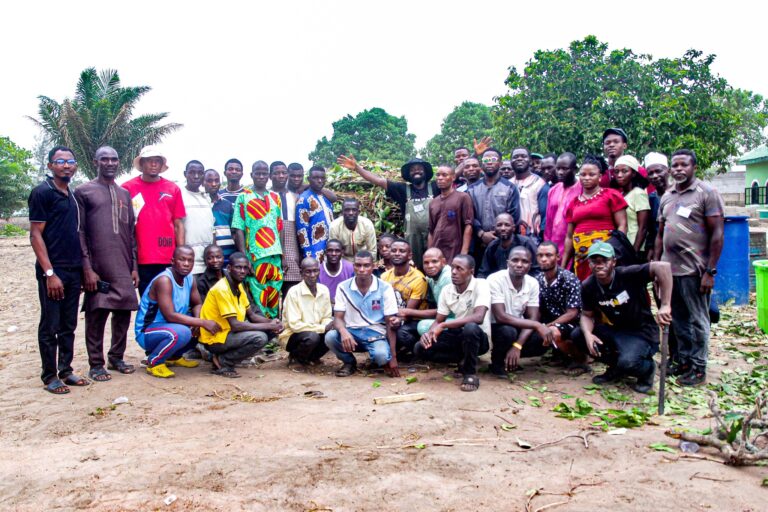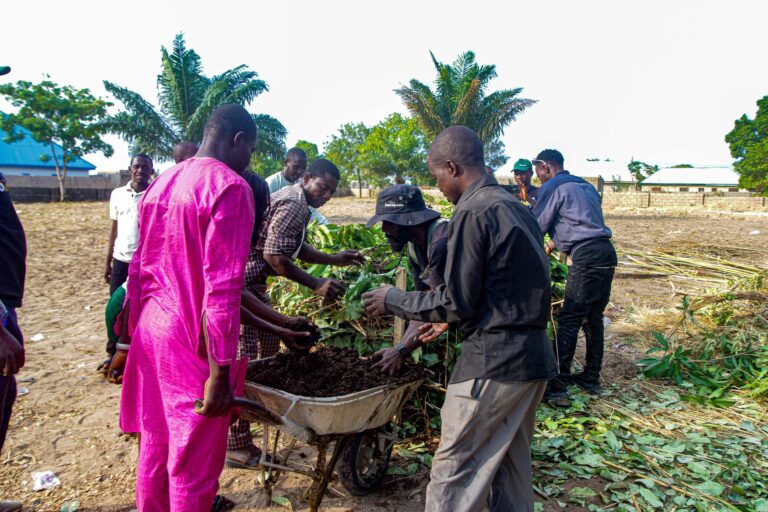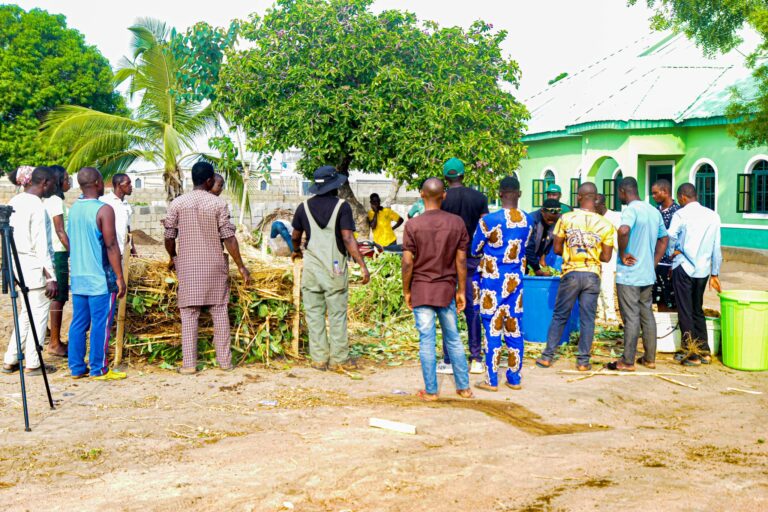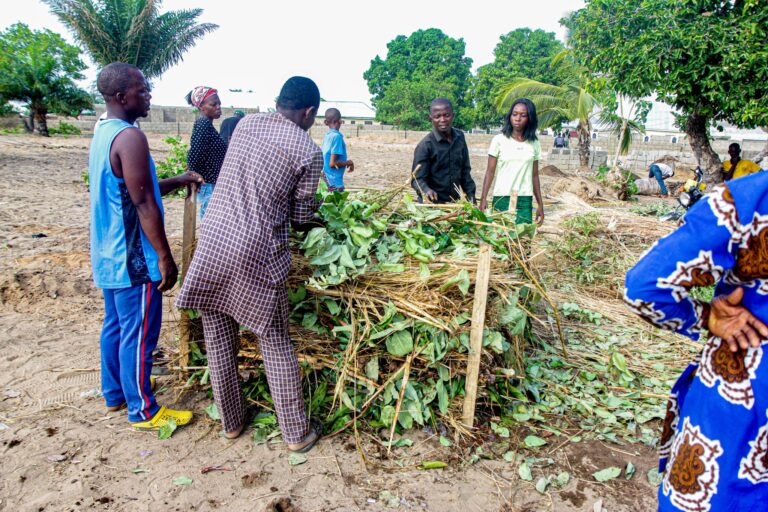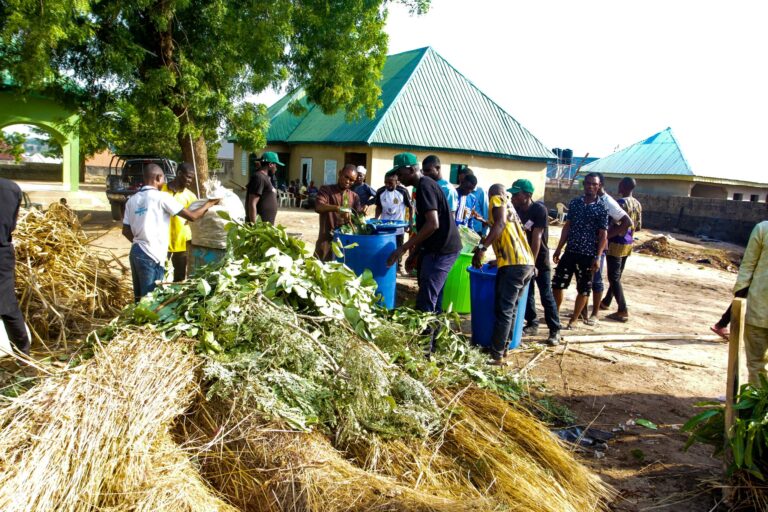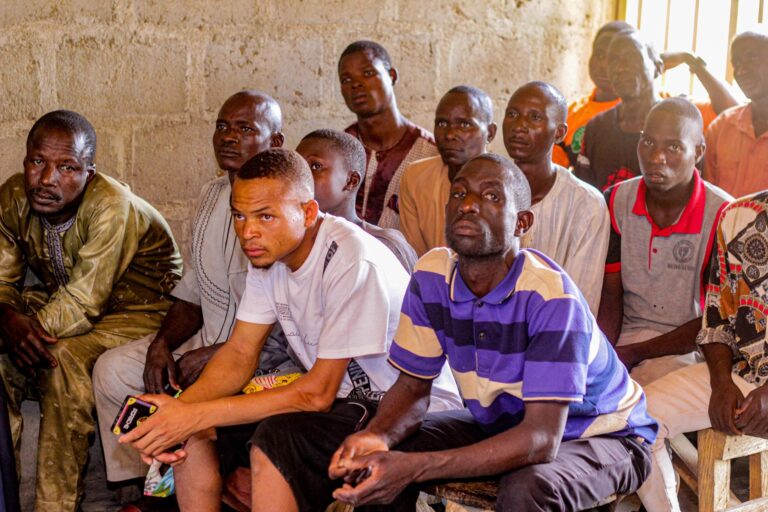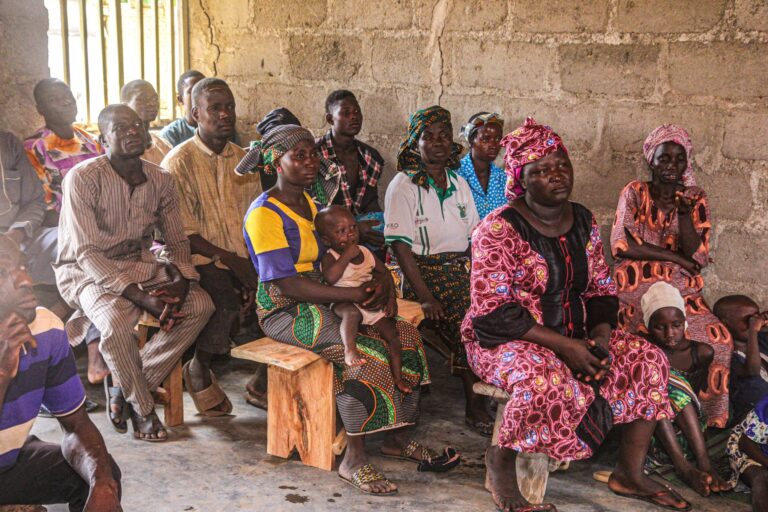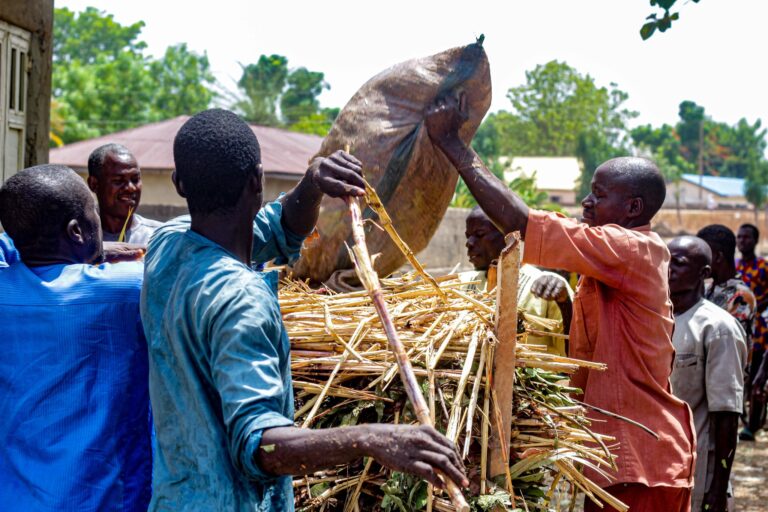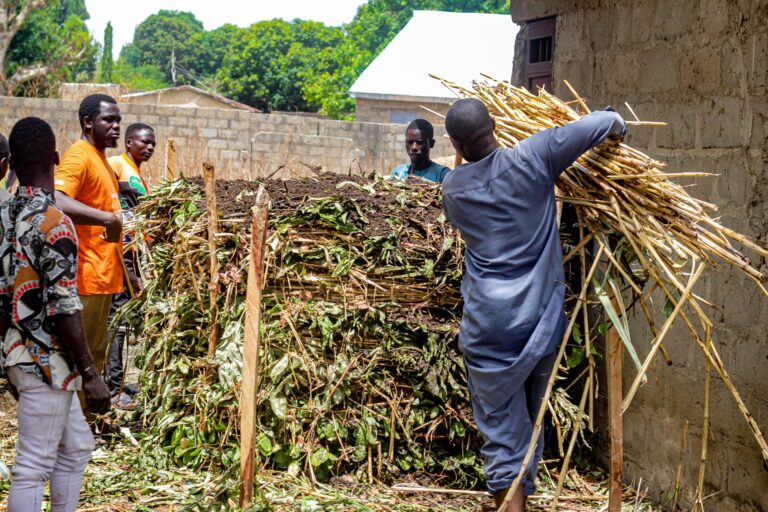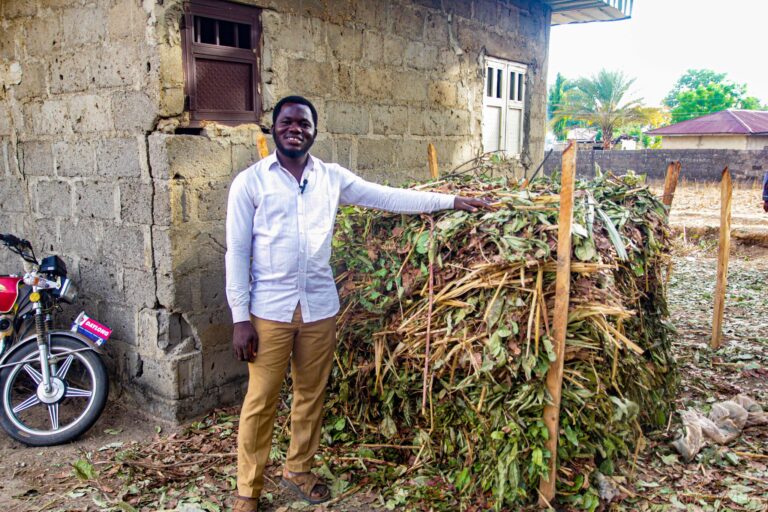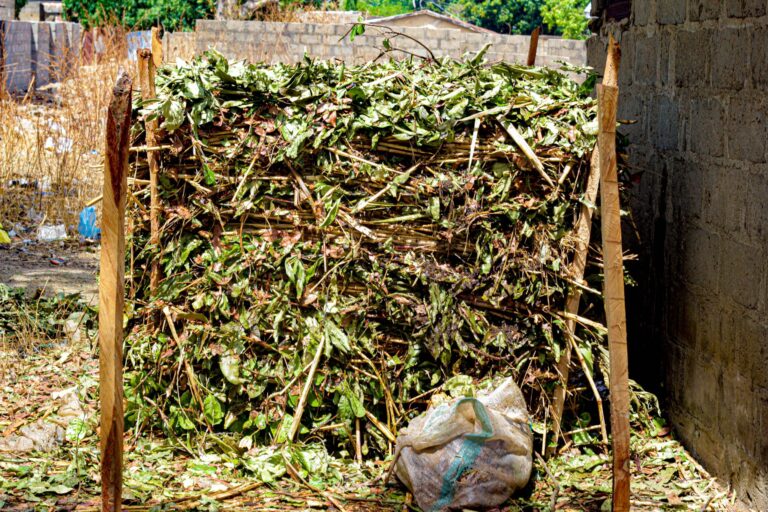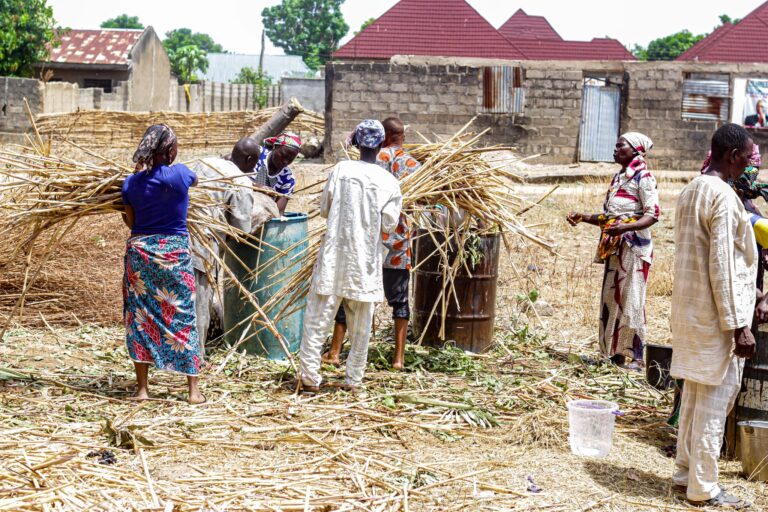Call Us
Location
9, Zaria Street, Garki 2, Abuja
Call Us
Location
9, Zaria Street, Garki 2, Abuja
The Food Secure Mission Project is a community-driven initiative designed to address the urgent challenges of food insecurity, environmental degradation, and the rising impacts of climate change on agriculture. The project is rooted in the belief that healthy ecosystems and empowered communities are the foundation of sustainable food systems. By combining land rehabilitation, ecological stewardship, and hands-on education, the initiative seeks to create resilient agricultural landscapes while empowering communities to take ownership of their food security.
Through the Food Secure Mission, we have continued our commitment to advancing food security and sustainable livelihoods across Nigeria and Niger Republic. Between April and May 2025, our team trained more than 120 farmers, including women, in Nasarawa and Niger States on regenerative agriculture models. This intervention builds upon our 2024 achievements, where over ₦5 million in interest-free loans were provided to farmers. The full repayment of these loans, accompanied by testimonies of abundant harvests, demonstrated the resilience, hard work, and potential of the farming communities we serve.
The 2025 training introduced practical, low-cost, and climate-smart methods, equipping farmers with tools to increase yields while conserving natural resources. The interest-free loan scheme launched in 2024 not only empowered farmers but also transformed livelihoods in remarkable ways. Some farmers purchased motorcycles for mobility, while others acquired processing machines to add value to their produce. Many expanded their farms by securing additional land.
At the heart of the project is community engagement in land stewardship and education. The Food Secure Mission Project recognizes that long-term solutions to food insecurity require the active participation of the people most affected by it. Through workshops, training sessions, and demonstration plots, the project equips farmers, youth, and community members with the knowledge and skills to practice sustainable farming. These educational activities focus on regenerative agricultural techniques, soil health management, crop rotation, and water conservation methods. By fostering a culture of environmental stewardship, the project ensures that local knowledge and global best practices merge to create practical, lasting solutions.
Another central pillar of the initiative is the rehabilitation of degraded agricultural land. Years of unsustainable practices, deforestation, and over-reliance on chemical inputs have left many farmlands barren and unproductive. The Food Secure Mission Project addresses this challenge by implementing soil restoration strategies, including organic composting, mulching, cover cropping, and agroforestry. These interventions aim to restore soil fertility, increase water retention, and revive biodiversity. Rehabilitated land will not only boost agricultural productivity but also create a healthier environment where ecosystems and communities can thrive together.
The project also emphasizes enhancing ecosystem resilience to climate change. With unpredictable rainfall patterns, extreme weather events, and rising temperatures threatening food production, climate-smart agricultural practices are essential. The Food Secure Mission Project introduces resilient farming models such as conservation agriculture, integrated pest management, and climate-adaptive crop varieties. In addition, the integration of trees and perennial crops into farming systems will help capture carbon, regulate microclimates, and protect against soil erosion. These measures collectively strengthen the ability of ecosystems and communities to withstand and adapt to climate-related shocks.
Ultimately, the initiative’s broader goal is to achieve food security through sustainable means. By restoring land, promoting stewardship, and enhancing resilience, the project ensures that families and communities have reliable access to safe, nutritious, and affordable food. Improved agricultural productivity will not only meet immediate food needs but also create opportunities for income generation, poverty reduction, and improved livelihoods. In turn, food-secure communities will be more resilient to future economic and environmental challenges.
The Food Secure Mission Project is more than an agricultural program; it is a holistic approach to rebuilding the relationship between people and the land. By engaging communities as partners and stewards, the initiative fosters ownership, sustainability, and shared responsibility. With restored farmlands, resilient ecosystems, and empowered communities, the project sets a foundation for lasting transformation—where food security is not just a goal but a lived reality for all.
